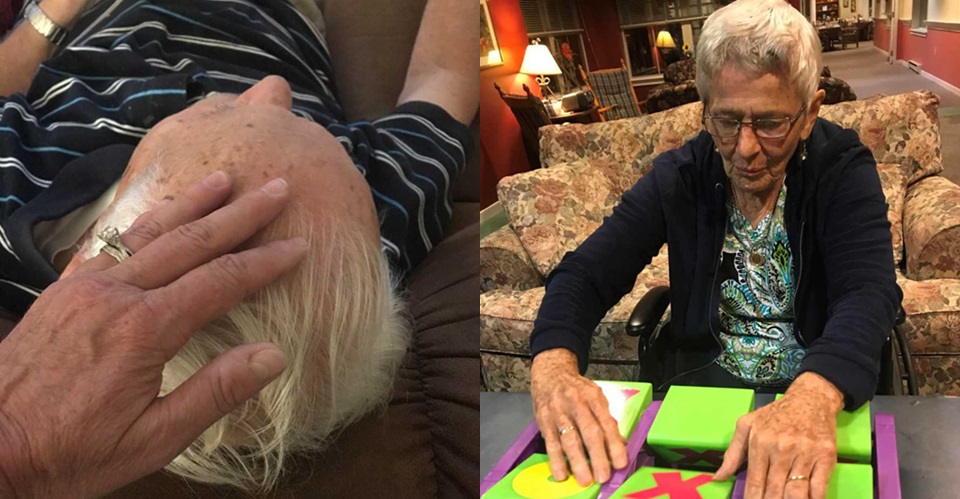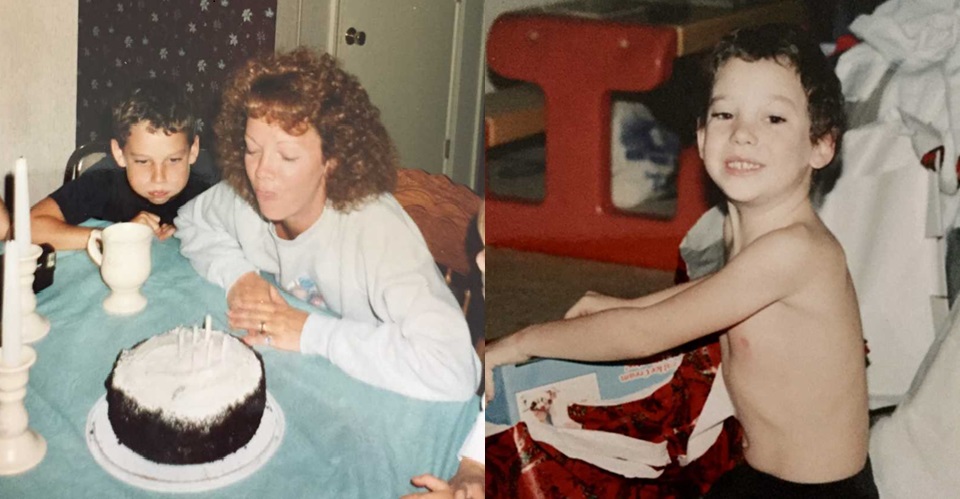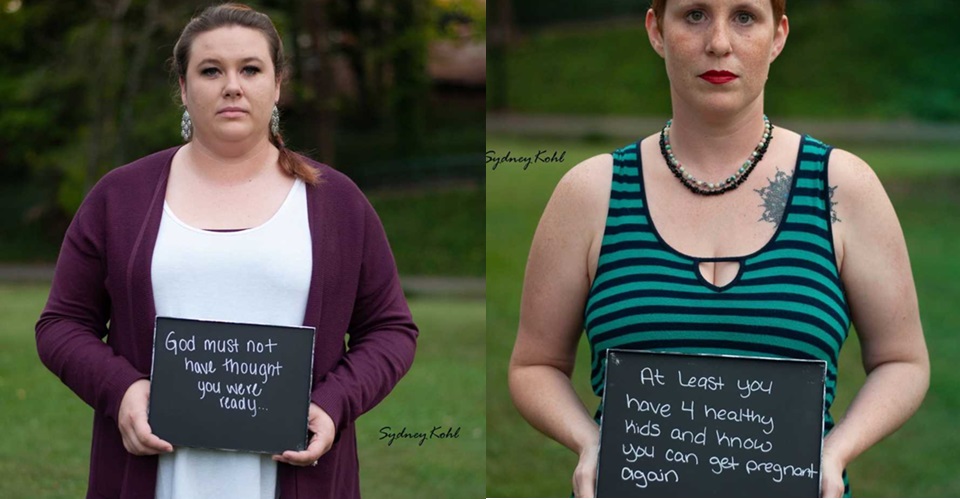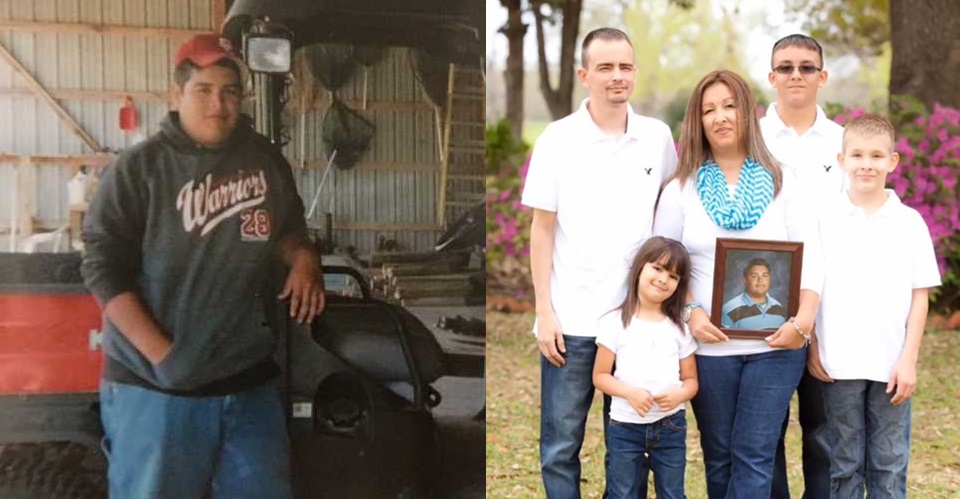Some moments break you quietly, moments you see coming but still aren’t ready for. For one daughter, watching her mother slip further into dementia felt like watching sunlight fade through a window you couldn’t open. She had known for years it was coming, but knowing and feeling it are two very different things.
Her mom had been living with dementia for nine years. The family had adjusted, or at least tried to. When her mom moved into assisted living, it seemed the right choice. There, she could wander freely without danger. There were little things for her to touch and hold, soft fabrics and puzzles that calmed her restless hands. On the surface, it looked peaceful, almost comforting. But for her daughter, it was anything but quiet. It was gut-wrenching.
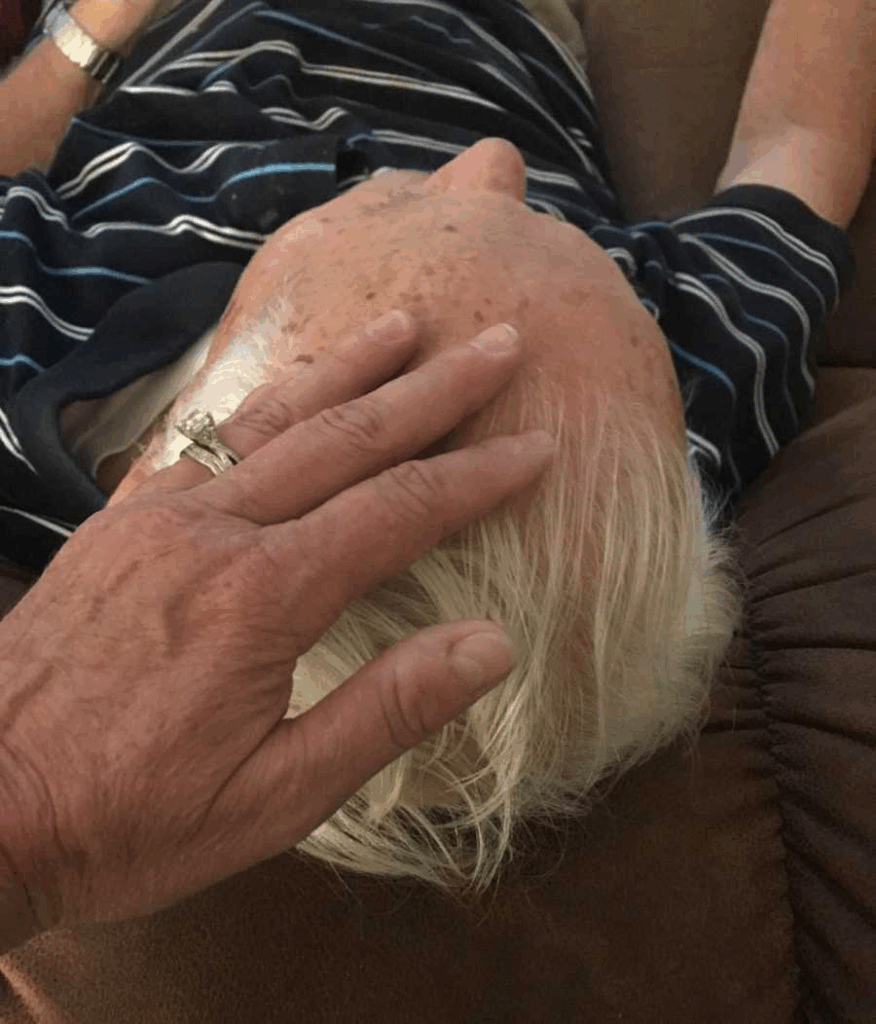
She knew this stage was next. She knew her mom would stop recognizing faces and forming words that made sense. She knew one day her mother’s eyes would look through her instead of at her. Yet somehow, she had tucked that truth away, deep inside her heart, hoping their family might be the lucky exception. One evening, she went to visit and found her mom being pushed slowly down the hallway in her wheelchair. The aides moved carefully, giving her time to reach for things and take in whatever her eyes still recognized. The daughter walked beside her, touched her shoulder, and said softly, “Hi Mom.” Nothing. Her mom stared straight ahead, eyes open but distant. There was no smile, no flicker of recognition.
And then the caregiver said, “Becky’s here.” Suddenly, her mom’s eyes moved slightly, and she said, “Becky?” It was her name, transparent and honest. It had been more than a year since her mom had spoken it. For a moment, her heart swelled with joy. But then she realized her mom wasn’t looking at her. She searched the space behind her, looking for some other version of Becky, maybe the younger one she remembered, or perhaps just the memory of love itself.
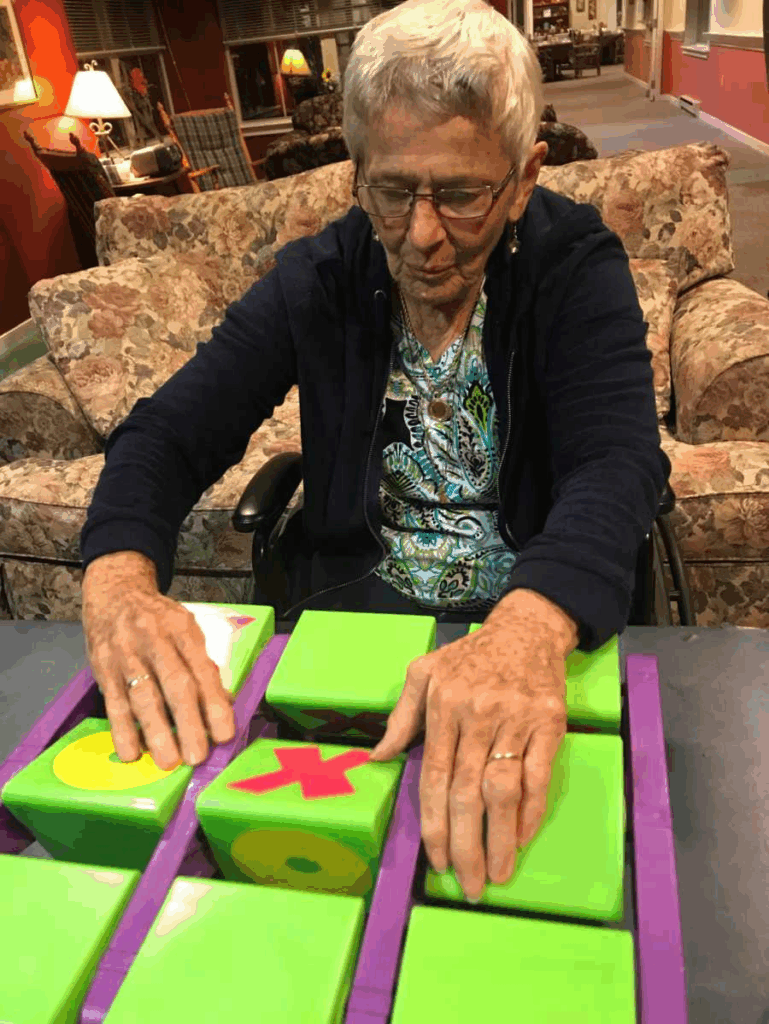
That tiny, fleeting word became everything. Becky replayed it in her mind repeatedly, afraid it would fade. She even wished she had recorded it so that she could hear her mom repeat her name someday. But she didn’t, so she kept it locked inside, like a treasure she couldn’t lose. She entered the room and found her dad sitting in his recliner, the same place he always sat, the man who had stood by her mom through every storm. His face lit up when he saw her. She handed him a warm oatmeal muffin stuffed with blueberries, something familiar, something homey. He smiled, took a bite, and asked about her day. How was work? How was the bakery? He just wanted to hear about the world beyond those walls.
They talked for a while, though talking meant yelling a little since one of his hearing aids had gone missing. When words ran out, they sat quietly, her mom behind them in her chair, fidgeting with her blanket. Her dad reached out and took her hand. “I miss her,” he said. That silence between them was heavy. She rubbed his head gently when he let go, just like she used to do for her brother when he was sick. Her dad remembered that too, and said it helped him feel calm. That small act reminded her how powerful human touch can be. It can soften pain, calm fear, and express love through fingertips.
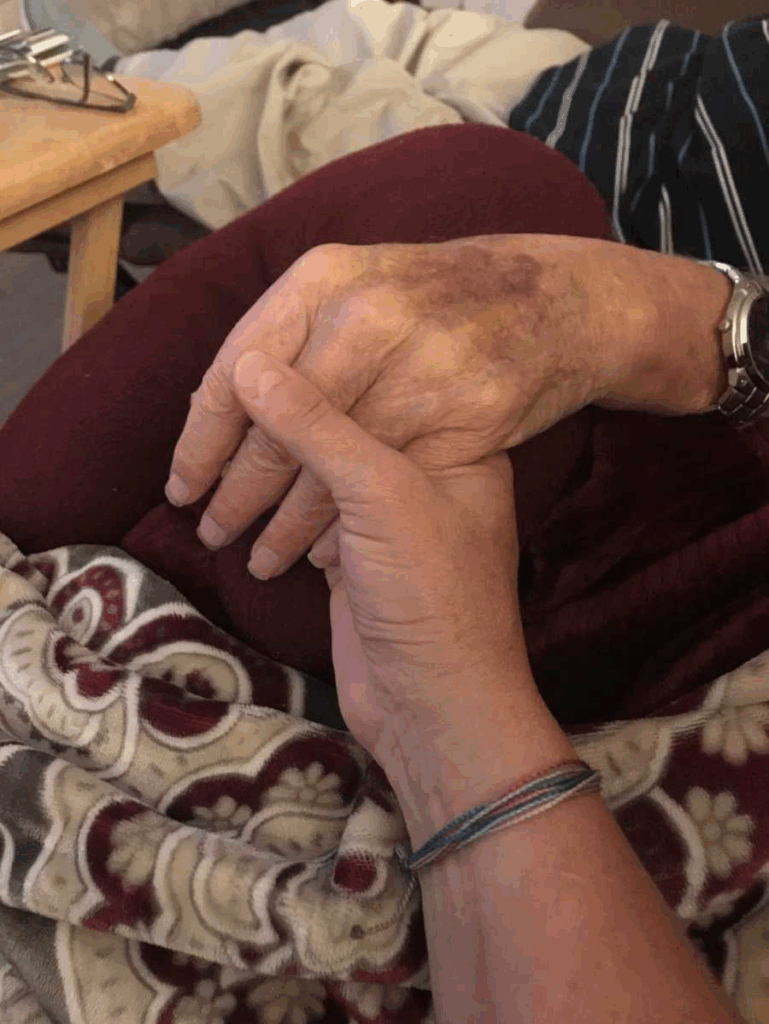
And then it hit her how cruel this disease really is. It doesn’t just take the memory of names or faces. It takes connection, touch, partnership, and even the comfort of being known. Her father, the man who had loved her mother so deeply, now sat in quiet defeat, realizing dementia had finally taken the one thing he still had, her touch. Every time she thinks this disease has taken all it can, it finds a way to bring more. And still keeps showing up, holding hands, rubbing heads, whispering her name even when there’s no response. Love doesn’t vanish just because memory does; that’s what makes heartbreak both unbearable and beautiful simultaneously.
